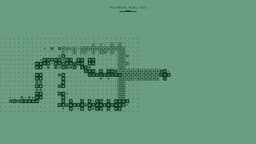How to Efficiently Debug PHP Code in Your Editor
Debugging PHP code is a crucial part of the development process. Whether you're fixing errors, optimizing performance, or enhancing functionality, having the right tools and strategies can make a significant difference in your efficiency and effectiveness. In this article, we'll explore some practical tips and techniques to help you debug PHP code effectively using your favorite code editor.
Understanding the Basics of Debugging
Before we dive into specific tools and techniques, it's essential to understand the fundamental principles of debugging. At its core, debugging is the process of identifying and resolving errors or issues in your code. This could include syntax errors, logical errors, performance bottlenecks, or unexpected behavior.
One common approach to debugging is using statements like var_dump() or echo to output variable values and control flow information. While this traditional method can be effective, it can also be time-consuming and cumbersome, especially for complex applications. That's where debugging tools in code editors come into play, offering more advanced features and capabilities to streamline the debugging process.
Choosing the Right Code Editor
The first step in debugging PHP code efficiently is to choose a code editor that supports robust debugging features. Popular code editors like Visual Studio Code, PhpStorm, and Sublime Text offer powerful extensions and integrations for PHP debugging. These tools typically provide functionalities such as breakpoints, variable inspection, step-by-step execution, and real-time error highlighting.
Once you've selected your preferred code editor, you can start configuring it to work seamlessly with PHP debugging. Most modern editors support common debugging protocols like Xdebug, which is a popular PHP extension that enables advanced debugging features. By installing the necessary extensions and setting up the debugger in your editor, you can significantly enhance your debugging capabilities.
Setting Up Debugging Environments
When debugging PHP code, it's crucial to have a proper environment set up to simulate your production environment accurately. This includes configuring your server, database, and other dependencies to ensure that your debugging session mirrors the actual runtime environment of your application.
For local development, tools like XAMPP, WampServer, or Docker can help you create PHP development environments quickly and easily. These tools provide a convenient way to set up Apache, PHP, MySQL, and other necessary components on your local machine, allowing you to test and debug your code effectively.
In addition to local environments, you may also need to debug code running on remote servers or cloud platforms. Many code editors offer built-in or third-party extensions that support remote debugging, allowing you to connect to a remote server and debug code directly from your editor.
Leveraging Breakpoints and Watches
One of the most powerful features of modern code editors is the ability to set breakpoints in your code. Breakpoints allow you to pause the execution of your script at specific lines or conditions, giving you the opportunity to inspect variable values, control flow, and execution context in real time.
By strategically placing breakpoints in your code, you can pinpoint the exact location of an error or unexpected behavior, making it easier to diagnose and fix issues efficiently. Additionally, many editors offer watch expressions that allow you to monitor the values of specific variables or expressions as you step through your code, providing valuable insights into the inner workings of your application.
Using Step-by-Step Execution
Another useful debugging technique is step-by-step execution, which allows you to move through your code one line at a time, observing the effects of each instruction on your application's state. This approach is particularly helpful for tracing the flow of control, identifying logical errors, and understanding complex algorithms.
Most code editors provide options for stepping into, over, or out of functions, as well as for resuming execution after a breakpoint. By taking advantage of these step-by-step features, you can methodically navigate through your codebase, gaining a deeper understanding of how your application behaves and where potential issues lie.
Inspecting Variables and Call Stacks
Debugging PHP code often involves examining the values of variables and inspecting the call stack to understand the execution context of your application. Modern code editors offer intuitive interfaces for viewing variable values, inspecting data structures, and navigating the call stack.
By leveraging these built-in tools, you can quickly identify the state of your application at any given point during debugging, allowing you to make informed decisions about how to proceed. This level of visibility into your code's runtime behavior can be invaluable when troubleshooting complex issues or optimizing performance.
Handling Errors and Exceptions
In addition to traditional debugging techniques, handling errors and exceptions is an essential aspect of maintaining a robust PHP application. By configuring your code editor to highlight syntax errors, undefined variables, and other common issues in real time, you can catch potential bugs before they cause runtime problems.
Many code editors offer integrated linters and static analysis tools that automatically flag syntax errors and coding standards violations as you type. By addressing these issues proactively, you can maintain a cleaner codebase and reduce the likelihood of runtime errors in your PHP applications.
Debugging PHP code in your editor doesn't have to be a daunting task. By leveraging the right tools, techniques, and best practices, you can streamline the debugging process, identify issues quickly, and maintain the stability and performance of your applications. Whether you're a seasoned developer or just starting out, mastering the art of debugging will make you a more efficient and effective PHP coder.
Next time you encounter a bug or unexpected behavior in your PHP code, remember to take a deep breath, set a breakpoint, and start unraveling the mystery with confidence. With the right approach and the right tools at your disposal, debugging PHP code can be a rewarding and enlightening experience. Happy debugging!












